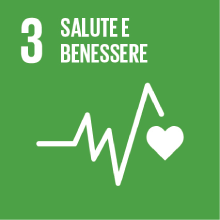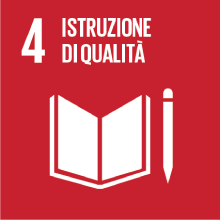VISUAL CULTURES II
- Anno accademico
- 2025/2026 Programmi anni precedenti
- Titolo corso in inglese
- VISUAL CULTURES II
- Codice insegnamento
- EM3A15 (AF:576604 AR:323656)
- Lingua di insegnamento
- Inglese
- Modalità
- In presenza
- Crediti formativi universitari
- 6 su 12 di VISUAL CULTURES
- Livello laurea
- Laurea magistrale (DM270)
- Settore scientifico disciplinare
- L-ART/06
- Periodo
- 4° Periodo
- Anno corso
- 1
- In collaborazione con
-

- Spazio Moodle
- Link allo spazio del corso
Inquadramento dell'insegnamento nel percorso del corso di studio
Risultati di apprendimento attesi
- Develop the ability to learn and use the specific vocabulary describing visual and screen cultures in pertinent ways;
- Acquire the skill to frame images and image technologies within the appropriate context, demonstrating their understanding of forms, authors and key issues across a variety of texts and experiences elicited through screen media;
- Showing an excellent familiarity in elaborating a consistent and pertinent argumentation about the studied topics.
Essential to pass the module is a basic development of critical thinking, so as to be able to recognise the logics and processes regulating contemporary visual culture artefacts, as well as the relationships amongst them. Ultimately, such critical thinking is expected to be individually articulated, constructively structured and collectively discussed using case studies, concepts and module readings alike. This is truly an essential skill not only because it will contribute to favour a respectful and dialogic environment in the classroom, but also and rather primarily because it is a key transferable skill required by the job market for pretty much each and every professional profile in line with the overall master’s programme.
Prerequisiti
Language-wise, students are expected to be fluent in English as per programme minimum entry requirement.
Basic editing and a/v skills are not necessary but are a plus.
Contenuti
The latter will be our specific focus as it lends itself to work both as a metaphor and an epistemic tool enabling us to easily understand and navigate the digital space of image circulation, manipulation, use and re-use. We will attempt to use the desktop as a portal to observe such processes. We will also practice the desktop as a creative surface for a number of hands-on sessions aimed at experimenting in first person the concepts we studied in a practical and creative way. The outcome of the hands-on sessions will be a short video-essay dealing with the topics explored during the theoretical sessions. Please consider no previous experience or skills in filmmaking is required.
Testi di riferimento
The volume, M. De Rosa, Camille Henrot, Notes on Desktop Cinema (Mimesis, 2024) will be used as a support to approach key concepts that will be tested in teh hands-on sessions.
Modalità di verifica dell'apprendimento
- a practical coursework (40% of the overall module grade) consisting of a media artefact to be created over the course of the module IN GROUPS. No specific skills nor technologies are requested, but some basic in editing and a/v production may be of help.
- an oral test (60% of the overall module grade) to assess the INDIVIDUAL understanding of the concepts and themes covered throughout the module.
Bibliography and assessment methods are the same for non-attending students, too. They are however invited to contact the teacher by email, so as to understand the structure of the module and fundamental issues addressed during the lectures.
Modalità di esame
Graduazione dei voti
18-20 PASS
Limited comprehension of notions, limited skill of exposition and reflection, no critical capacity
21-23 SATISFACTORY
Sufficient comprehension of notions presented in an unclear and reflexive manner; difficulties in elaborating, and synthesizing ideas
24-26 GOOD
Good comprehension of notions but limited capacity of exposition, reflection, and synthesis
27-28 VERY GOOD
In-depth comprehension of notions that are presented in a clear and articulated manner; remarkable synthesizing capacity and critical reflection
29-30 VERY GOOD
Broad and in-depth comprehension of notions that are presented in an articulated and sophisticated manner. Excellent ability in exposing ideas synthetically, and critical ability
30 CUM LAUDE EXCELLENT
Broad and in-depth comprehension of notions showing an advanced knowledge of broader disciplinary and interdisciplinary debates, a mastery of academic language, and a capacity for original and critical thinking
Metodi didattici
We will combine frontal lectures, working sessions and critical discussions. The timetable has been adjusted in order to accommodate hands-on sessions and giving time enough to the students to practice and receive feedback in a workshop environment.
You will be supported in your work and interaction with fellow students and the lecturer by a set of teaching materials such as presentations, clips, hands-on skill sessions and the likes. The latter is particularly important, as the module has been designed and scheduled so that you can have work and feedback sessions.
In order for everybody to participate in stimulating sessions an active participation is required. You are also required to do your weekly reading for a more evenly distributed learning process.
Altre informazioni
Obiettivi Agenda 2030 per lo sviluppo sostenibile
Questo insegnamento tratta argomenti connessi alla macroarea "Capitale umano, salute, educazione" e concorre alla realizzazione dei relativi obiettivi ONU dell'Agenda 2030 per lo Sviluppo Sostenibile



